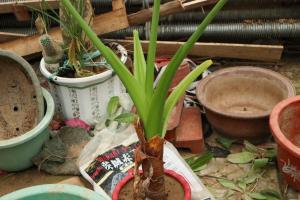Does Epsom Salts Add Calcium to Tomato Plants?
Many gardeners have heard of using Epsom salts to boost the growth and health of their tomato plants. However, some are unsure about whether Epsom salts actually add calcium to tomato plants. In this article, we will explore the connection between Epsom salts and calcium for tomato plants.
What are Epsom Salts?
Epsom salts, also known as magnesium sulfate, are a mineral compound that are used widely in gardening and plant care. They are composed of magnesium, sulfur, and oxygen, and are commonly used to promote growth and enhance the overall health of plants.
What are the benefits of Epsom Salts for Tomato Plants?
There are several benefits of using Epsom salts for tomato plants. Firstly, Epsom salts contain magnesium, which is a vital nutrient for plant growth. Magnesium helps to stimulate the production of chlorophyll, which in turn helps to improve the process of photosynthesis in plants. This can lead to healthier, more robust tomato plants.
Additionally, Epsom salts can also help to improve soil quality. The sulfur content in Epsom salts can help to lower the soil pH, which can be beneficial for plants that prefer more acidic soil. Finally, Epsom salts can also reduce the risk of transplant shock, which can occur when tomato plants are moved from one location to another.
Does Epsom Salts Add Calcium to Tomato Plants?
Despite its many benefits, Epsom salts do not actually contain any calcium. This means that they cannot directly add calcium to tomato plants. However, Epsom salts can indirectly promote the uptake of calcium by tomato plants.
Calcium is essential for the growth and development of tomato plants, and a lack of calcium can lead to a condition known as blossom end rot. This is a disorder that causes black, sunken areas on the bottom of tomato fruits, and is caused by a calcium imbalance in the plant.
While Epsom salts do not contain calcium, they can help to improve the overall health of tomato plants. By providing an adequate supply of magnesium, Epsom salts can help to ensure that tomato plants are able to properly and efficiently absorb calcium from the soil.
How to Use Epsom Salts for Tomato Plants
If you decide to use Epsom salts for your tomato plants, it is important to use them correctly. Firstly, it is recommended to apply Epsom salts when tomato plants are in the blossom stage, as this is when they require the most nutrients. Secondly, it is important to dilute the Epsom salts in water before applying them to the soil, as concentrated Epsom salts can cause damage to plant roots. Finally, it is recommended to apply Epsom salts around the base of the plant, rather than directly onto the foliage, as this can also cause damage.
In Conclusion
While Epsom salts do not directly add calcium to tomato plants, they can indirectly help to ensure that tomato plants are able to efficiently absorb calcium from the soil. Additionally, Epsom salts contain magnesium, which is a vital nutrient for plant growth and can help to improve the overall health of tomato plants. If you decide to use Epsom salts for your tomato plants, be sure to apply them correctly and at the appropriate time to fully reap their benefits.

 how many times do yo...
how many times do yo... how many planted tre...
how many planted tre... how many pine trees ...
how many pine trees ... how many pecan trees...
how many pecan trees... how many plants comp...
how many plants comp... how many plants can ...
how many plants can ... how many plants and ...
how many plants and ... how many pepper plan...
how many pepper plan...

































